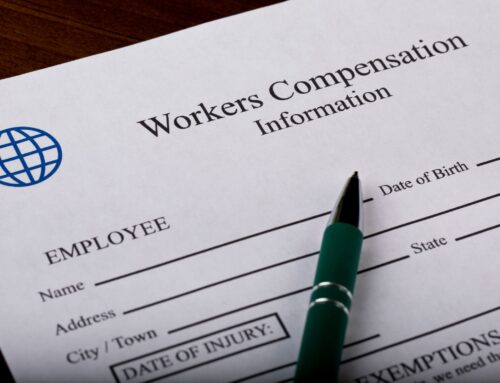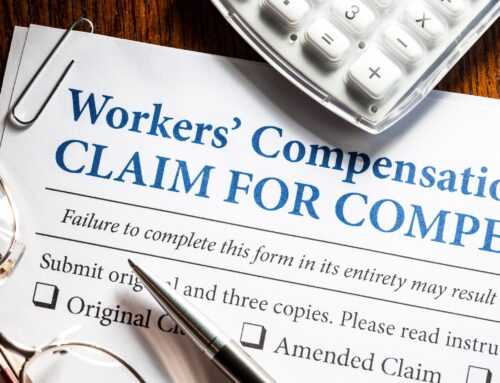For many workers, an unexpected layoff or termination brings uncertainty, especially when dealing with an injury. One question often arises: Can you still file for workers’ compensation after being fired? Understanding your rights is critical, as misconceptions around post-termination claims can prevent injured employees from getting the benefits they deserve. In New Jersey, the right to file workers’ compensation after termination is preserved under specific conditions. Let’s explore the details to help ensure that if you’re injured and recently let go, you know how to navigate your claim.
Can You File for Workers’ Compensation After Being Fired in New Jersey?
The answer is yes—in most cases, you can still file for workers’ compensation after a layoff or termination in New Jersey, as long as the injury occurred during your employment. State laws support workers’ rights to file claims regardless of their employment status, so if your injury was work-related and occurred before termination, you’re likely still eligible to file a claim.
Moreover, New Jersey law includes protections against “retaliation” for filing workers’ compensation claims. This means an employer cannot fire you to prevent you from seeking benefits. However, if you were injured during your employment and fired shortly after reporting your injury, a NJ workers compensation attorney can help determine if the termination was lawful or retaliatory.
Factors That Influence Your Claim
Filing a workers’ compensation claim after termination can be more complex than filing while still employed, and a few critical factors can impact the success of your claim:
- Timing of the Injury and Reporting: For a strong claim, the injury must have occurred before the termination, and it should ideally have been reported while still employed. If you filed a report about your injury before being fired, you have a better foundation for proving eligibility. Delays in reporting, especially after termination, can sometimes weaken a case.
- Reason for Termination: If your termination was for legitimate reasons unrelated to your injury, your claim may be simpler. However, if you suspect the firing was in retaliation for reporting an injury, this may become a legal matter requiring proof and representation. Cases of fired and workers comp rights violations in NJ may require you to show that the termination was linked to your injury report.
- Documented Medical Evidence: Medical documentation is crucial in any workers’ compensation claim. For terminated employees, a clear medical record can be pivotal. Ensure that your healthcare provider’s records are comprehensive and detail the work-related nature of the injury. This can establish a direct link between your injury and employment, strengthening your claim.
Keeping these factors in mind and working with an attorney can help reinforce your case if you’re filing a claim post-termination.
Legal Protections and the Role of an Attorney
If you’re terminated and filing a workers’ compensation claim, legal protections in New Jersey support your rights, but navigating them can be tricky. Hiring a workers’ compensation attorney can make a critical difference in several situations:
- Disputed Claims: Employers may dispute post-termination claims, sometimes alleging that the injury was not related to work or not severe enough for benefits. An attorney can help gather evidence, consult medical experts, and advocate for fair compensation.
- Retaliation Claims: If there’s suspicion that your firing was retaliatory, having an attorney is essential. An experienced NJ workers compensation attorney can build a case by reviewing your termination details, timelines, and evidence of potential retaliation, working to protect your rights.
- Navigating Complex Paperwork: The workers’ compensation process involves detailed paperwork and strict deadlines. If you’ve been terminated, meeting all these requirements is critical, and a lawyer can help streamline and manage this complex process to ensure your rights are maintained.
A workers’ compensation attorney is not only a legal advisor but also a valuable advocate for your rights throughout this challenging time.
Next Steps if You’ve Been Terminated and Need to File a Claim
If you’re considering filing a claim after being terminated, follow these steps to protect your case:
- Contact a Workers’ Compensation Attorney: Early guidance is essential. They can provide advice tailored to your situation and help you navigate any challenges with your employer.
- Gather Medical Documentation: Ensure your medical records clearly document the nature and timing of your injury. These records should specify that your injury was work-related to support your workers’ comp claim.
- Document Communications with Your Employer: If you reported your injury while still employed, keep copies of any written communications with your employer. This can include emails, injury reports, and any responses related to your case.
- File Your Claim Promptly: Filing promptly can strengthen your claim, as delays can sometimes weaken its credibility. Make sure all paperwork is complete and submitted within New Jersey’s required timeframe.
Taking these steps helps ensure that if you were let go while injured, your claim stands the best chance of success.
Conclusion
Termination doesn’t automatically bar you from receiving workers’ compensation benefits in New Jersey. If you’ve been fired and are unsure about your eligibility for workers’ compensation, seeking expert guidance is essential. Contacting a workers’ compensation attorney can help clarify your rights and improve your chances of a successful claim. Remember, your legal rights exist to protect you—reach out today to get personalized advice and take the next steps toward securing the benefits you deserve.






